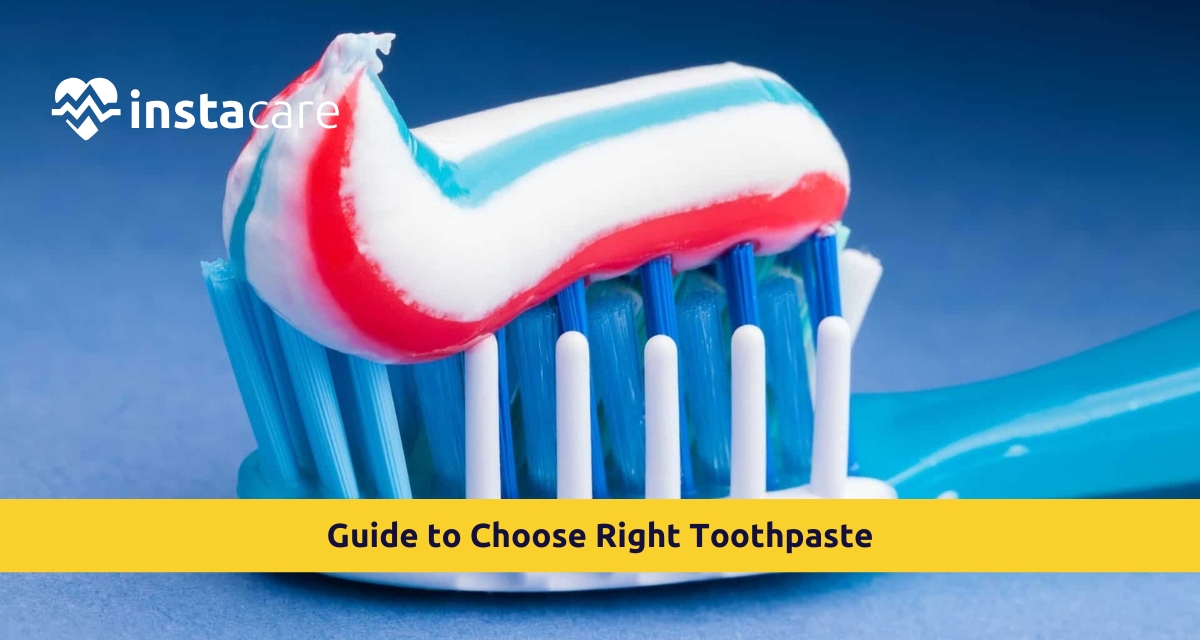This is perhaps one of the biggest choices that a person gets to make once they decide they need to maintain higher levels of oral hygiene. Since millions are sold, it is unusual to know which works best for you. This will look at the various types of toothpaste, features that you should look for in a toothpaste, and some of the most frequently asked questions in hopes of trying to help better select a toothpaste.
Types of Toothpaste
There are many formulas developed to fight specific oral
conditions. Some of the most common types that you'll find include:
1. Fluoride Toothpaste
Consumption of fluoride toothpaste is now considered the universal best practice dental practice for preventing cavities. Moreover, fluoride as one of the essential minerals of the teeth can help harden the enamel, which should be capable of resisting acidic assault by bacteria in the plaque. The best kind of toothpaste according to most dental health personnel is the fluoride gel because of the proof about its effectiveness against cavity. Advantages of Fluoride Toothpaste: Prevention of Cavities Enamel remineralization: This prevents the cavities.
- Building Up Enamel: Fluoride can reverse early decay stages
- Worldwide Accepted: Tooth organizations worldwide endorse the product
2. Whitening Toothpaste
Whitening teeth pastes will clean out the stains from your teeth and give you the brightness of your smile. Typically, such products contain mild abrasives together with other chemicals such as hydrogen peroxide that may assist in removing those stains from your food, drinks and smoking.
- Mild Abrasives: These include silica that help scrub away at
the surface stains.
- Temporary Effects: Whitening agents deposit brightness but
do not affect your natural tooth color.
- Sensitivity Care: Some teeth whitening agents are likely to cause sensitivity. So, use with caution
3. Whitening Toothpaste for Sensitive Teeth
Causes of sensitive teeth include: wearing down of the enamel or dentin, destruction, and wasting of the gums. Most pain-relieving toothpastes for sensitive teeth, over-the-counter, contain ingredients that stop impulses in your teeth to cause pain. Decrease Tooth
- Sensitivity: Use for relief of hypersensitivity to temperature and sweet taste.
- Long Term Use: Continued use can lead to the state of
exaggerated relief.
- If it still lives on even after it has been used, try out a dentist to check them out thoroughly
4. Natural/Herbal Toothpaste
It naturally avoids synthetic agents and uses the extracts
or mineral constituents. Among the chief active ingredients may be neem and
baking soda or perhaps the tea tree oil. Not all of it is made with a substance
called fluoride. The downside especially when one tries to help ward off the
cavity-inducing agents.
Advantages and Disadvantages of Natural Toothpaste
- Fewer chemicals: For those who love to have their oral care
method more natural.
- Few fluoride options: Most of the naturally occurring
formulas contain trace amounts of fluoride.
- Variety in strengths: The strength of most of the natural ingredients has a very steep gradient.
5. Children's Toothpaste
It is specially made for the little consumers: it is the
toothpaste for kids. It mainly comprises low concentrations of fluoride,
although flavors that make brushing such an exciting activity. It is safe for
children to ingest the product partially sometimes.
Important Components of Kids Toothpaste
- Less Fluoride Content: It helps to reduce the risk of dental
fluorosis in the developing teeth.
- Delectable flavor: These flavors are enjoyable to brush for
kids.
- Age-related packing: Bright color and cartoon character attract the child eye.
View More: List of Alarming Signs You Need To See a Dentist
6. Tartar Control Toothpaste
Tartar control toothpaste prevents tartar formation. Tartar
is an easily hardened plaque that leads to gum diseases. Preparations may
contain pyrophosphates or zinc citrate that prevent tartar formation.
Advantages of Tartar Control Toothpaste
It prevents the formation of plaques so there is no
deposition of tartar.
- Oral Hygiene: It helps in general oral hygiene once
developed as a habit
- Not a Substitute: It can be helpful only in conjunction with
normal dental cleaning.
- Active Ingredients to look out for
Therefore, when purchasing the toothpaste there are some active ingredients that can be used as indicators of the efficiency for your requirement.
Here are some of the most essential ingredients to look for:
1. Fluoride
The most important ingredient in preventing caries is
fluoride. This provides enamel strengthening that is capable of allowing for
early decay repair. Choose a toothpaste which contains at least 1,000 ppm of
fluoride.
2. Abrasives
There is a need for some mild abrasives to remove the plaque
and surface stains. There are various kinds of abrasives and examples of each
of the following:
- Calcium carbonate. This is a natural abrasive and may be
used as an agent in cleaning your teeth.
- Silica. It is a polishing abrasive that will not cause any damage to the enamel of the teeth.
3. Desensitizing Agents
To those individuals with sensitive teeth, you can use tooth
paste that contains a desensitizing ingredient for instance potassium nitrate
or strontium chloride which inhibits the transmission of nerve pain causing
sensations.
4. Whitening Agents
In case of whitening, you ought to use the toothpaste that
has hydrogen peroxide or baking soda. Of these, both raise the stains and hence
make the region lighter or give your teeth the natural color over time.
5. Flavor Agents
Although flavor will not be necessary to make it effective,
it may still make the act of brushing any more enjoyable. Flavored agents
contain mint, cinnamon, and fruit flavors. Be sure and to pick a flavor in
which you are interested to have a better chance of brushing more often.
The Right Toothpaste for You
So, the next time you venture out to the store to get
toothpaste, consider these so you will have the best product for your needs:
1. Assessment of Your Oral Needs
You have to decide on what oral problems you might have.
Common problems usually include cavities, sensitivity, and discoloration. This
will help you find what you need in toothpaste.
2. Personal Preference
Remember your personal preferences about taste and what
ingredients you love or hate and certain textures. A comfortable toothpaste for
you will be one that reminds you to brush most.
3. Age and Family Needs
Good toothpaste for families must work across all ages. For
babies, there will be kids' toothpaste. And for adults, there must be options
which are tailored directly to their needs.
4. Talk to Your Dentist
Your dentist can suggest what is specifically best suited
for your oral health. Dental check-ups are indispensable in identifying
particular problems related to your teeth that should be dealt with through
your preferred toothpaste.
Conclusion
The best toothpaste is an important decision in good dental health. Familiarity with the various kinds of toothpastes and their major ingredients can help answer the need of the dental patient to assist in the right choice. From cavity prevention to the numbing of a sensitive tooth, help with whitening for that brighter smile, and lots more, there is a toothpaste for almost everything.
Just select the toothpaste you will be needing based on your own requirements and preferences. Take some time out, present this to your dentist, and you shall be just fine. Toothpaste in your oral hygiene keeps you getting a fresher and whiter grin and keeps your oral health always on the top of your mind and priority. Daily brushing with suitable toothpaste and routine dental checkup does make ensure good oral hygiene long term.
Please book an appointment with the best Dentist in Lahore, Karachi, Islamabad, and all major cities of Pakistan through InstaCare, or call our helpline at 03171777509 to find the verified doctor for your disease.












